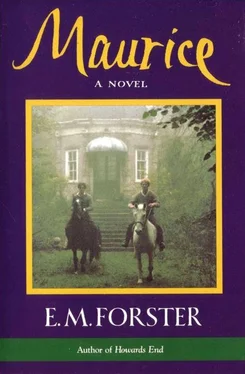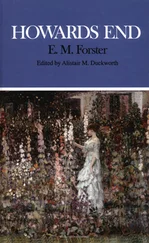Dedicated to a Happier Year
Begun 1913
Finished 1914
1
Once a term the whole school went for a walk — that is to say the three masters took part as well as all the boys. It was usually a pleasant outing, and everyone looked forward to it, forgot old scores, and behaved with freedom. Lest discipline should suffer, it took place just before the holidays, when leniency does no harm, and indeed it seemed more like a treat at home than school, for Mrs Abrahams, the Principal's wife, would meet them at the tea place with some lady friends, and be hospitable and motherly.
Mr Abrahams was a preparatory schoolmaster of the old-fashioned sort. He cared neither for work nor games, but fed his boys well and saw that they did not misbehave. The rest he left to the parents, and did not speculate how much the parents were leaving to him. Amid mutual compliments the boys passed out into a public school, healthy but backward, to receive upon undefended flesh the first blows of the world. There is much to be said for apathy in education, and Mr Abrahams's pupils did not do badly in the long run, became parents in their turn, and in some cases sent him their sons. Mr Read, the junior assistant, was a master of the same type, only stupider, while Mr Ducie, the senior, acted as a stimulant, and prevented the whole concern from going to sleep. They did not like him much, but knew that he was necessary. Mr Ducie was an able man, orthodox, but not out of touch with the world, nor incapable of seeing both sides of a question. He was unsuitable for parents and the denser boys, but good for the first form, and had even coached pupils into a scholarship. Nor was he a bad organizer. While affecting to hold the reins and to prefer Mr Read, Mr Abrahams really allowed Mr Ducie a free hand and ended by taking him into partnership. Mr Ducie always had something on his mind. On this occasion it was Hall, one of the older boys, who was leaving them to go to a public school. He wanted to have a "good talk" with Hall, during the outing. His colleagues objected, since it would leave them more to do, and the Principal remarked that he had already talked to Hall, and that the boy would prefer to take his last walk with his school-fellows. This was probable, but Mr Ducie was never deterred from doing what is right. He smiled and was silent. Mr Read knew what the "good talk" would be, for early in their acquaintance they had touched on a certain theme professionally. Mr Read had disapproved. "Thin ice," he had said. The Principal neither knew nor would have wished to know. Parting from his pupils when they were fourteen, he forgot they had developed into men. They seemed to him a race small but complete, like the New Guinea pygmies, "my boys". And they were even easier to understand than pygmies, because they never married and seldom died. Celibate and immortal, the long procession passed before him, its thickness varying from twenty-five to forty at a time. "I see no use in books on education. Boys began before education was thought of." Mr Ducie would smile, for he was soaked in evolution.
From this to the boys.
"Sir, may I hold your hand… Sir, you promised me…" Both Mr. Abrahams's hands were bagged and all Mr Read's."…Oh sir, did you hear that? He thinks Mr Read has three hands!... I didn't, I said 'fingers'. Green eye! Green eye!"
"When you have quite finished —!"
Sir!
"I'm going to walk with Hall alone."
There were cries of disappointment. The other masters, seeing that it was no good, called the pack off, and marshalled them along the cliff towards the downs. Hall, triumphant, sprang to Mr Ducie's side, and felt too old to take his hand. He was a plump, pretty lad, not in any way remarkable. In this he resembled his father, who had passed in the procession twenty-five years before, vanished into a public school, married, begotten a son and two daughters, and recently died of pneumonia. Mr Hall had been a good citizen, but lethargic. Mr Ducie had informed himself about him before they began the walk.
"Well, Hall, expecting a pi-jaw, eh?"
"I don't know, sir — Mr Abrahams' given me one with 'Those Holy Fields'. Mrs Abrahams' given me sleeve links. The fellows have given me a set of Guatemalas up to two dollars. Look, sir! The ones with the parrot on the pillar on."
"Splendid, splendid! What did Mr Abrahams say? Told you you were a miserable sinner, I hope."
The boy laughed. He did not understand Mr Ducie, but knew that he was meaning to be funny. He felt at ease because it was his last day at school, and even if he did wrong he would not get into a row. Besides, Mr Abrahams had declared him a success. "We are proud of him; he will do us honour at Sunnington": he had seen the beginning of the letter to his mother. And the boys had showered presents on him, declaring he was brave. A great mistake — he wasn't brave: he was afraid of the dark. But no one knew this.
"Well, what did Mr Abrahams say?" repeated Mr Ducie, when they reached the sands. A long talk threatened, and the boy wished he was up on the cliff with his friends, but he knew that wishing is useless when boy meets man.
"Mr Abrahams told me to copy my father, sir."
"Anything else?"
"I am never to do anything I should be ashamed to have mother see me do. No one can go wrong then, and the public school will be very different from this."
"Did Mr Abrahams say how?"
"All kinds of difficulties — more like the world."
"Did he tell you what the world is like?"
"No."
"Did you ask him?"
"No, sir."
"That wasn't very sensible of you, Hall. Clear things up. Mr Abrahams and I are here to answer your questions. What do you suppose the world — the world of grown-up people is like?"
"I can't tell. I'm a boy," he said, very sincerely. "Are they very treacherous, sir?"
Mr Ducie was amused and asked him what examples of treachery he had seen. He replied that grown-up people would not be unkind to boys, but were they not always cheating one another? Losing his schoolboy manner, he began to talk like a child, and became fanciful and amusing. Mr Ducie lay down on the sand to listen to him, lit his pipe, and looked up to the sky. The little watering-place where they lived was now far behind, the rest of the school away in front. The day was gray and windless, with little distinction between clouds and sun.
"You live with your mother, don't you?" he interrupted, seeing that the boy had gained confidence.
"Yes, sir."
"Have you any elder brothers?"
"No, sir — only Ada and Kitty."
"Any uncles?"
"No."
"So you don't know many men?"
"Mother keeps a coachman and George in the garden, but of course you mean gentlemen. Mother has three maid-servants to look after the house, but they are so idle that they will not mend Ada's stockings. Ada is my eldest little sister."
"How old are you?"
"Fourteen and three quarters."
"Well, you're an ignorant little beggar." They laughed. After a pause he said, "When I was your age, my father told me something that proved very useful and helped me a good deal." This was untrue: his father had never told him anything. But he needed a prelude to what he was going to say.
"Did he, sir?"
"Shall I tell you what it was?"
"Please, sir."
"I am going to talk to you for a few moments as if I were your father, Maurice! I shall call you by your real name." Then, very simply and kindly, he approached the mystery of sex. He spoke of male and female, created by God in the beginning in order that the earth might be peopled, and of the period when the male and female receive their powers. "You are just becoming a man now, Maurice; that is why I am telling you about this. It is not a thing that your mother can tell you, and you should not mention it to her nor to any lady, and if at your next school boys mention it to you, just shut them up; tell them you know. Have you heard about it before?"
Читать дальше












